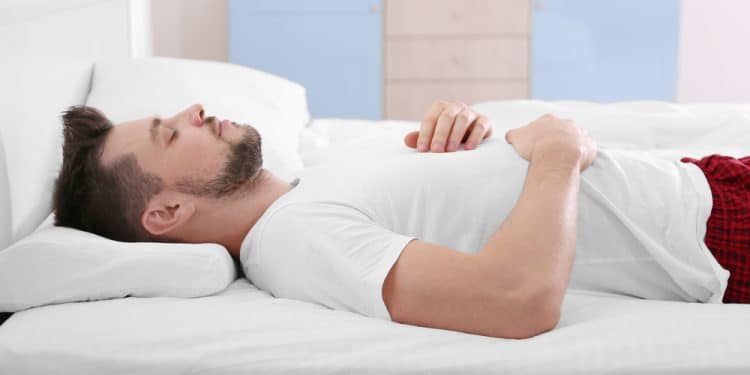When it comes to choosing a mattress, one of the most common questions people have is whether a firm mattress is better for their back. Back pain can be a major issue for many sleepers, and finding the right mattress is crucial for alleviating discomfort and promoting a good night’s sleep. In this article, we will explore the relationship between firmness and back health, discuss the difference between a firm mattress and a supportive mattress, and provide recommendations for the best mattresses for back pain.
The Importance of Support
Before diving into the specifics of firmness, it’s important to understand the role of support in promoting a healthy back. A supportive mattress is designed to promote proper spinal alignment and keep your spinal curves in a neutral position. It provides the necessary support to your back, allowing your muscles to relax and decompress as you sleep.
On the other hand, an unsupportive mattress can lead to poor spinal alignment, which can exacerbate back pain. When your mattress doesn’t provide adequate support, your muscles have to work harder to support your spine throughout the night, leading to aches and pains in the morning.
Firmness vs. Support
When considering the firmness of a mattress, it’s essential to understand that there is a difference between firmness and support. Firmness refers to the feel and comfort of the mattress, while support refers to the ability of the mattress to keep your spine in proper alignment.
While some sleepers may find that a firmer mattress provides the necessary support for their back, others may find that a softer mattress is more comfortable. It ultimately depends on your personal preferences, body weight, and sleeping position.
For example, if you carry more weight or sleep on your back or stomach, a firmer mattress may help distribute your body weight more evenly and prevent your back from curving too much. In contrast, side sleepers or individuals with lighter body weight may prefer a softer mattress to provide extra cushioning for their hips and shoulders.
It’s important to note that not all firm-feeling mattresses are inherently supportive for every sleeper. An overly firm mattress can be just as problematic as an unsupportive one. It’s crucial to find the right balance of firmness and support to ensure optimal spinal alignment and alleviate back pain.
Signs Your Mattress is Causing Back Pain
If you’re experiencing back pain, it’s worth considering whether your mattress is the culprit. Here are some common signs that your mattress may be causing or exacerbating your back pain:
Waking up with Aches and Pains
If you consistently wake up with aches and pains in your back, it could be a sign that your mattress is not providing the necessary support. A good mattress should support your spine, allowing your muscles to relax and decompress as you sleep. If your mattress is unable to do this, you may experience muscle soreness and lower back pain.
Difficulty Finding a Comfortable Sleeping Position
If you find it challenging to find a comfortable sleeping position due to back pain, it may be a result of an unsupportive mattress. When your mattress fails to properly support your spine, your body is unable to relax, leading to tossing and turning throughout the night.
Better Sleep on Different Mattresses
If you notice that you get better sleep on vacations or when sleeping on a different mattress, it could indicate that your current mattress is not suitable for your back. The fact that you experience less or no pain while sleeping on a hotel mattress or a mattress in a guest bedroom suggests that your mattress may be contributing to your back pain.
Pre-Existing Conditions
If you have pre-existing back conditions such as scoliosis or arthritis, a firm mattress may not be the best choice for you. While it was once believed that a firm mattress was ideal for individuals with chronic pain, studies have shown that people with low back pain who slept on hard beds had the poorest sleep quality. It’s important to consult with your healthcare provider and consider a mattress that suits your specific condition.

Best Mattress for Back Pain
Finding the best mattress for back pain is a highly personalized process, as everyone has unique needs and preferences. However, there are general recommendations that can help guide your decision-making. Here are some mattress types and recommendations based on different sleep preferences:
Firm Mattresses
1. If you carry more weight, sleep on your back, or sleep on your stomach, a firm mattress may be a suitable option for you. A firm mattress can help distribute your body weight evenly and prevent excessive curving of your spine.
Soft to Medium Mattresses
2. If you’re a side sleeper or prefer a softer feel, a soft to medium mattress may be more suitable for your back. These mattresses provide extra cushioning for your hips and shoulders, promoting proper spinal alignment.
Remember, these recommendations are just a starting point, and it’s essential to visit showrooms and speak to mattress specialists to find the perfect mattress for your precise needs.
Conclusion
In conclusion, the firmness of a mattress is not the sole determinant of its ability to provide support for your back. While some sleepers may find a firm mattress beneficial, others may prefer a softer feel. The key is to find the right balance of firmness and support to promote proper spinal alignment and alleviate back pain.
When selecting a mattress, consider your body weight, sleeping position, and personal preferences. Test out different mattresses, consult with experts, and prioritize finding a mattress that suits your specific needs.
Remember, a supportive mattress is crucial for maintaining a healthy back and ensuring a good night’s sleep. Invest the time and effort to find the perfect mattress that will provide optimal support and comfort for your individual sleep needs.





